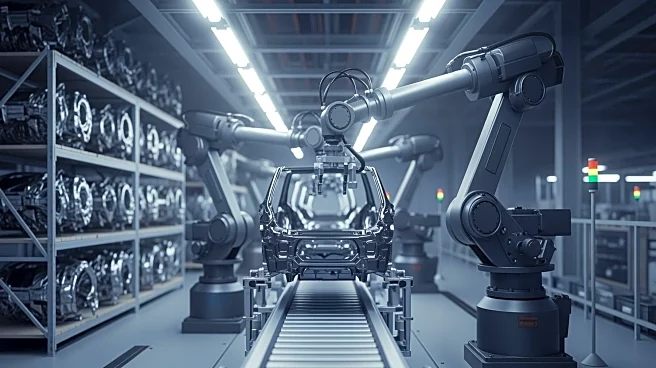What's Happening?
The U.S. automotive industry is facing potential shutdowns due to a new chip shortage, exacerbated by the Chinese government's decision to block exports from Nexperia, a key chip supplier. This development adds to the ongoing supply chain challenges that
have plagued the industry, including tariff pressures and the cancellation of electric vehicle projects. The shortage of semiconductors, essential for modern vehicle production, threatens to halt assembly lines across the country, impacting manufacturers and consumers alike.
Why It's Important?
The semiconductor shortage highlights the vulnerability of global supply chains and the critical role of chips in the automotive sector. As vehicles become increasingly reliant on electronic components, disruptions in chip supply can have far-reaching consequences, affecting production schedules, employment, and the availability of new vehicles. The situation underscores the need for diversified supply chains and increased domestic production capabilities to mitigate future risks. The automotive industry's response to these challenges will be crucial in maintaining its competitiveness and stability.
What's Next?
Automakers and industry stakeholders are likely to intensify efforts to secure alternative chip sources and advocate for policy measures that support domestic semiconductor manufacturing. The situation may prompt a reevaluation of supply chain strategies, with a focus on resilience and sustainability. In the short term, consumers may experience delays in vehicle availability and potential price increases as manufacturers navigate the supply constraints.
Beyond the Headlines
The chip shortage raises broader questions about the geopolitical dynamics of global trade and the strategic importance of technology supply chains. It also highlights the intersection of technology and manufacturing, as industries increasingly depend on advanced components. The situation may accelerate discussions on national security and economic independence, influencing future trade policies and industrial strategies.

















